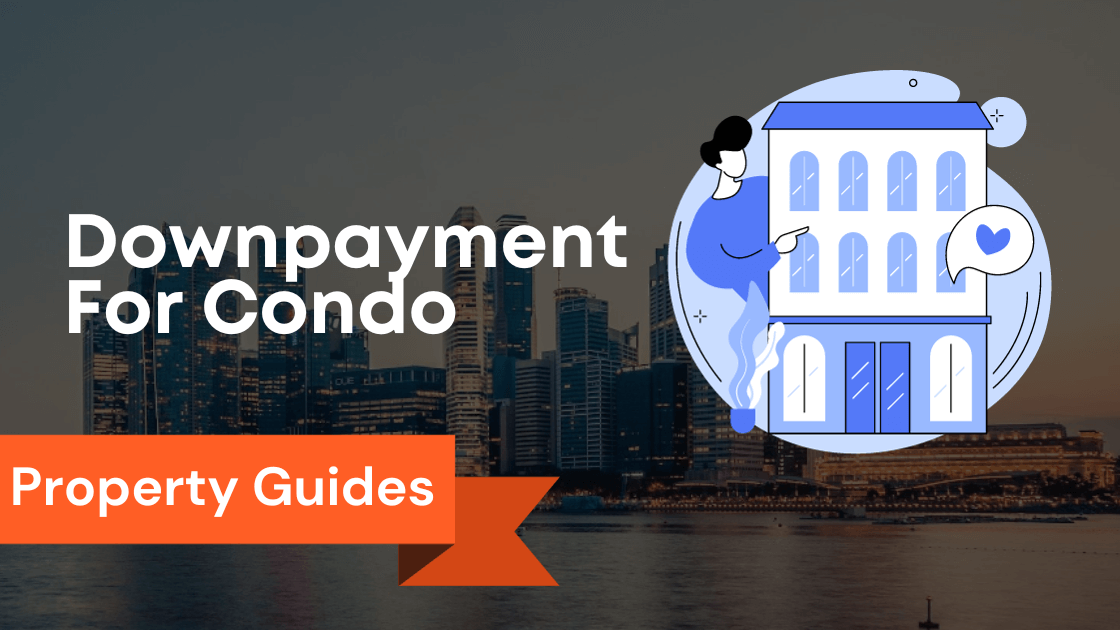
What is the Control of Rent Act?
The Control of Rent Act is a legislation that governs the control of rents in Singapore.
It is designed to regulate and protect both landlords and tenants in the rental market.
This act sets out the guidelines and regulations for rent control, ensuring that rental properties are fairly priced and accessible to tenants.
Purpose and history of the Control of Rent Act

The primary purpose of the Control of Rent Act is to maintain stability in the rental market and prevent landlords from exploiting tenants with exorbitant rental rates.
This act was first introduced in 1947 and has since undergone several amendments to adapt to the changing rental landscape.
Key Features and Objectives of the Act
The Control of Rent Act aims to achieve a balance between the interests of landlords and tenants. Some key features and objectives of the act include:
- Rent Control: The act limits the amount by which landlords can increase the rent of their properties, ensuring that rental rates remain reasonable and affordable for tenants.
- Rent Calculation: The act provides guidelines on how rent should be calculated, taking into account factors such as the condition of the property, its location, and the prevailing rental rates in the market.
- Dispute Resolution: The act sets out a framework for resolving disputes between landlords and tenants, ensuring that fairness and justice are upheld.
Key Takeaways
- Purpose of Control of Rent Act:
- Govern rents in Singapore.
- Regulate and protect landlords and tenants.
- Maintain stability and prevent exploitation.
- Key Features and Objectives:
- Rent control limits increases.
- Guidelines for fair rent calculation.
- Framework for dispute resolution.
- Covered Properties:
- Residential, commercial, condominiums.
- Exclusions based on construction date.
- Rent Calculation:
- Based on base rent, determined rent, and influencing factors.
- Specifies rent payment frequency.
- Pros and Cons of Rent Control:
- Advantages for Tenants:
- Protection against unfair rent increases.
- Assurance of stable housing.
- Challenges for Landlords:
- Limitation on setting market-based rents.
- Balancing tenant and landlord interests.
- Economic Implications:
- Cost of living may rise.
- Potential reduction in rental property supply.
- Advantages for Tenants:
- Tenant Rights and Protections:
- Under Control of Rent Act:
- Legal protections against unfair practices.
- Requirement for fair and signed agreements.
- Under Common Law:
- Safeguards against unreasonable clauses.
- Consideration for tenant demographics.
- Under Control of Rent Act:
- Landlord Rights and Responsibilities:
- Under Control of Rent Act:
- Maintenance obligations.
- Rights regarding rent adjustments.
- Under Common Law:
- Grounds for tenancy termination.
- Consideration of tenant profiles.
- Under Control of Rent Act:
- Recent Amendments to Control of Rent Act:
- Removal of rent control provision.
- Introduction of Rental Relief Framework.
- Increased transparency in tenancy agreements.
- Government Initiatives for Affordability:
- Rental Assistance Framework.
- Public Rental Scheme.
- Incentives for private landlords for affordability.
- Property Rights under Control of Rent Act:
- Ownership and control rights.
- Importance of registered property agents.
- Requirement for written rental agreements.
Which properties are covered by the Control of Rent Act?

The Control of Rent Act covers various types of properties, including residential properties, apartment rentals, commercial properties, and condominium rentals.
However, it is important to note that not all properties are subject to the act.
For example, properties that were built after a certain date are not covered by the act.
How is rent calculated under the Control of Rent Act?
Rent calculation under the Control of Rent Act is based on various factors, including the base rent, determined rent, and factors that may affect the rent.
The act also stipulates the frequency of rent payment and the consequences of rent arrears.
The Control of Rent Act plays a crucial role in regulating the rental market in Singapore.
It provides a framework for fair and reasonable rental rates, ensuring that both landlords and tenants are protected.
Rent Control – Rental

Pros and cons of rent control
Rent control measures have both advantages and disadvantages for both tenants and landlords.
Let’s take a look at some of these factors.
Advantages for tenants
- Tenant rights: Rent control provides tenants with protection against unfair rent increases, allowing them to maintain stable and affordable housing.
- Quiet enjoyment: With rent control in place, tenants can enjoy the security of knowing that they won’t be forced out of their homes due to unaffordable rent.
Challenges for landlords
- Landlord rights: Rent control can limit the rights of landlords, particularly when it comes to setting rental prices in line with market value.
- Balance between landlords: Rent control policies aim to strike a balance between protecting tenant rights and ensuring landlords can still maintain profitable investments.
Economic implications
- Cost of living jumps: Rent control can lead to increased living costs in the long term, as landlords may compensate for capped rents by raising prices for other goods and services.
- Consumer costs: Rent control measures often result in reduced supply of rental properties, which may in turn drive up prices for those not protected under the rent control regulations.
How rent control affects tenants
Tenant rights and protections
Under the Control of Rent Act, tenants are provided with certain rights and protections, including the ability to challenge unfair rental increases and seek redress for substandard living conditions.
Impact on rental costs
Rent control ensures that rental costs remain affordable for tenants, as landlords are restricted from imposing exorbitant rent increases.
Impact on expatriate residents
For expatriate residents, rent control can have mixed implications.
While it may provide stability and affordability for some, it can also result in a shortage of rental properties, leading to higher costs and potential exodus of expats.
How rent control affects landlords
Landlord rights and limitations
The Control of Rent Act outlines the rights and limitations for landlords, including restrictions on rent increases beyond a reasonable threshold.
Managing rental properties
Landlords may face challenges in managing their rental properties due to the restrictions imposed by rent control measures.
This can include limitations on the eviction process and difficulty in recovering costs for property maintenance and improvements.
Commercial property considerations
Rent control regulations may also apply to commercial properties, impacting both landlords and tenants.
Commercial tenants may benefit from more stable rental costs, while landlords may face limitations on rent adjustments based on market conditions.
Rent control is a complex issue with various implications for both tenants and landlords.
It is important to consider these pros and cons when evaluating the impact of rent control policies on the rental market in Singapore.
Tenant Rights and Protections

Tenant rights under the Control of Rent Act
Tenants in Singapore are protected by the Control of Rent Act, which sets out several legal provisions to ensure fair agreements between landlords and tenants.
Here are some key tenant rights under this act:
- Legal protections: The act prohibits landlords from charging excessive rent or evicting tenants without following proper legal procedures.
- Clause on fair agreement: The act requires that landlords and tenants enter into a fair and reasonable agreement, including clauses that protect the rights and interests of both parties.
- Lease agreements and form of leases: The act provides guidelines for lease agreements, such as the required format and content of the lease document.
- Rental agreement: The act states that rental agreements must be in writing and signed by both the landlord and tenant. This ensures clarity and avoids disputes.
- Specific tenant rights: The act also includes specific provisions for certain categories of tenants, such as permanent residents and healthcare workers, to ensure their rights and protection.
Tenant rights under the common law
In addition to the Control of Rent Act, tenants in Singapore are also protected by common law provisions.
Here are some key tenant rights under common law:
- Common clause: Common law provides safeguards against unreasonable clauses in lease agreements that may be detrimental to the tenant.
- Express clause: Tenants have the right to enforce specific clauses in the lease agreement that protect their interests.
- Family and unit considerations: Common law takes into account the needs of the tenant’s family and the suitability of the unit, especially in cases involving larger units like four-bedroom apartments.
- Tenant demographics: Common law also considers the rights of foreign residents and provides additional protection, such as allowing tenants to stay for an additional month after the lease expires.
During the post-war years, there was a significant housing shortage, which left many individuals in dire need of a place to live.
Landlords took advantage of this housing crisis, putting profit before the well-being of their tenants.
These unscrupulous individuals would exploit the vulnerability of those seeking accommodation by charging exorbitant rents for substandard living conditions.
It was a time when the housing market was dominated by landlords who cared little for the hardships faced by their tenants.
However, in an attempt to rectify this unjust situation, rent of or remove the government introduced legislation to protect tenants and hold landlords accountable for their actions.
One such measure was the establishment of a compensation scheme for those who had suffered at the hands of unscrupulous landlords.
This scheme aimed to provide financial relief to those affected and ensure that landlords were held responsible for their exploitative practices.
Eligibility for such compensation was based on evidence provided by tenants and the severity of their living conditions.
However, it was unfortunate that this compensation scheme, which had provided hope for those who had been victimized, rent control would be abolished would soon come to an end.
The government announced that it would abolish the scheme on 1st January of the following year, leaving many uncertain about their future and the fate of their claims.
The decision to terminate this essential support system for vulnerable tenants was met with great disappointment and raised concerns about the government’s commitment to ensuring fair and just living conditions for all citizens.
It remains to be seen how those affected will navigate the complex and challenging landscape of the housing market in the absence of this compensation scheme.
How to protect your tenant rights
To protect their rights as tenants in Singapore, individuals can seek legal advice and support from Conveyancing Lawyers for Singapore Property Transactions.
These professionals specialize in property law and can guide tenants through the legal process rent is increased.
In case of disputes with landlords, tenants should communicate their concerns clearly and try to find a mutually beneficial solution.
It’s important to strike a balance between the rights of tenants and the responsibilities of landlords to maintain a harmonious landlord-tenant relationship.
In conclusion, tenant rights and protections are crucial to ensure a fair and balanced rental market.
Tenants in Singapore have legal safeguards under the Control of Rent Act and common law provisions.
Seeking legal advice and effective communication can help tenants protect their rights and resolve disputes amicably.
Landlord Rights, Obligations, and Responsibilities
Responsibilities of landlords under the Control of Rent Act
Landlords in Singapore have important responsibilities under the Control of Rent Act.
These include providing legal support to tenants, hiring conveyancing lawyers for property transactions, and managing tenant relationships while maintaining a balance between their considerations and those of tenants.
Maintenance and repair obligations of landlords
Landlords are also responsible for maintaining and repairing their properties, and landlords during the housing shortage.
This includes ensuring that the rental unit is safe and habitable for tenants.
Any necessary repairs or upgrades should be attended to promptly to ensure the well-being of the tenants.
Landlord rights under the Control of Rent Act
The Control of Rent Act grants landlords certain rights and obligations.
These include a ceiling on rent growth to ensure fair and reasonable rental increases.
Landlords also have rights concerning commercial properties and industrial properties, as well as in the commercial property market.
The Act also outlines the processes for tenant and landlord applications and specifies the ability of landlords to make certain decisions regarding their properties.
Landlord rights under the common law
In addition to the rights granted under the Control of Rent Act, landlords also have rights under common law.
These include considerations such as the common grounds for landlords to terminate a tenancy, the inclusion of a diplomatic clause in rental agreements, and the handling of lease contract expirations.
Landlords also have the right to consider tenant profiles, especially in cases involving fixed-income tenants or government-assisted tenants.
It is important for landlords to understand and uphold their rights, obligations, and responsibilities under both the Control of Rent Act and common law.
This ensures that they are able to effectively and legally manage their rental properties while also maintaining positive relationships with their tenants.
By staying informed and seeking legal assistance when necessary, landlords can ensure a smooth and fair rental process for all parties involved.
Amendments to the Control of Rent Act

Recent amendments and their impact on tenants and landlords
Singapore’s Control of Rent Act (CRA) has undergone recent amendments to address the rising concerns over rental affordability for both tenants and landlords.
These changes aim to strike a balance between safeguarding tenants’ rights and ensuring a fair return for property owners.
One significant amendment is the removal of the rent control provision, which previously capped rental increases for existing tenancies.
The removal allows landlords to adjust rental rates in accordance with market conditions, providing them with more flexibility to meet their investment needs.
However, to protect vulnerable tenants, the government has introduced a Rental Relief Framework that offers assistance and guidance to those facing financial difficulties.
Additionally, the amendments have introduced more transparency and clarity in tenancy agreements.
Landlords are now required to disclose key rental terms upfront, including the basis for rental adjustments, service and conservancy charges, and the types of repairs tenants are responsible for.
This increased transparency promotes better communication and understanding between landlords and tenants.
Government initiatives to address rental affordability issues
Recognizing the importance of ensuring affordable rental rates, the Singapore government has implemented various initiatives to address rental affordability issues.
The Rental Assistance Framework, for example, provides financial aid to low-income families and individuals through monthly rental subsidies and other assistance schemes.
This framework aims to alleviate the burden of high rental costs on low-income households and promote social stability.
To increase the supply of affordable rental options, the government has rolled out initiatives such as the Rental Housing Scheme and the Public Rental Scheme.
These programs provide public rental units at subsidized rates to eligible families, helping to bridge the affordability gap for those in need.
Furthermore, the government has been actively encouraging private landlords to provide affordable rental options through the Adapt and Grow initiative.
This scheme offers incentives and support to landlords who offer their properties at affordable rates, contributing to a more inclusive and accessible rental market.
The recent amendments to the Control of Rent Act, along with these government initiatives, demonstrate Singapore’s commitment to maintaining rental affordability while balancing the interests of both tenants and landlords.
These measures aim to create a sustainable and fair rental market that benefits all parties involved.
Property Rights
Property rights under the Control of Rent Act
As a landlord or property owner in Singapore, it is important to understand the control of rent act and how it impacts your property rights.
The Control of Rent Act (CRA) governs the rental market in Singapore and provides regulations for tenancy agreements, rental rates, and eviction processes.
Here are some key points to know about property rights under the Control of Rent Act.
- Ownership and control: Under the CRA, property owners have the right to control the rental of their properties. They can set the rental rates and conditions of their properties, as long as they comply with the regulations outlined in the act.
- Property agent: If you engage a property agent to manage your rental property, it is important to ensure that they are registered with the Council for Estate Agencies (CEA). This ensures that the agent is qualified and adheres to professional standards.
- Rental agreements: The CRA requires that rental agreements be in writing and signed by both the landlord and the tenant. The agreement should clearly state the rental amount, payment terms, and other conditions agreed upon by both parties.
- Combined rent: In some cases, the CRA allows for the combining of rent for two or more separate properties. This can be useful for landlords who own multiple properties and wish to offer a combined rental rate.
- Rental market dynamics: The rental market in Singapore is characterized by strong demand and a housing shortage, especially in popular areas. This can lead to higher rental rates and tougher competition among tenants.
Property rights under the common law
Aside from the Control of Rent Act, property owners in Singapore also have property rights under common law principles.
These rights include the right to quiet enjoyment of their properties, meaning that tenants cannot excessively disrupt their neighbors or engage in illegal activities.
Permanent residency considerations may also come into play when renting out properties.
Landlords have the right to consider a tenant’s residency status and may choose to prioritize permanent residents.
However, there are market challenges that property owners may face.
This includes difficulties in finding suitable tenants, especially for properties that are subject to rent control.
Senior managers or healthcare workers who require temporary accommodation may also add complexity to the rental market.
How to protect your property rights
To protect your property rights, it is important to be aware of the legal safeguards provided by the Control of Rent Act and common law.
Engaging a reliable property lawyer or seeking legal advice can help you navigate any legal issues that may arise.
As an investor, it is also crucial to explore different investment strategies for your properties.
This may include acquiring distressed property assets or diversifying into other areas of the rental market.
By understanding your property rights and the regulations that govern the Singaporean rental market, you can navigate the complex landscape with confidence and protect your investment.
Conclusion
Significance of the Control of Rent Act in Singapore’s real estate landscape
The Control of Rent Act, introduced on February 23, 2001, marked a significant milestone in Singapore’s real estate landscape.
The Act aimed to abolish rent control and give landlords the freedom to increase rent or remove tenants.
The Act was officially abolished on April 1, 2001, but certain outstanding matters were addressed through the Tenants’ Compensation Board.
This transition allowed for redevelopment and the dissolution of the ordinance.
The Act was introduced to protect tenants from unscrupulous landlords and provide a fair compensation system.
Under the Act, if a landlord wished to remove a tenant, they were required to compensate their tenant.
This ensured that tenants were not unfairly displaced and had some financial security during the transition.
Final thoughts on the Act’s impact on renters and landlords
While the Control of Rent Act was abolished, its impact on renters and landlords cannot be overlooked.
For tenants, the Act offered protection and compensation in case of displacement and increased rent.
This alleviated concerns and provided a sense of security for renters.
On the other hand, landlords had more flexibility and control over their properties after the Act’s abolition.
They were able to increase rent to reflect market rates and make necessary changes to their property.
23 Feb 2001, a significant event unfolded within the legislative realm.
The passing of Bill 2001 marked a turning point in the control of rent, an issue that had long plagued the housing sector.
The aim of this bill was to introduced the control of rent measures that would either limit the rent or provide the power to remove it altogether.
The prevalent notion was that by eliminating rent control, the market would be allowed to regulate itself, resulting in increased efficiency and more fluid transactions.
As a result, tenants would no longer be protected from exorbitant rent increases, a situation that had often left them vulnerable and financially strained.
The abolition of rent control was set to take effect promptly on 1 April 2001.
Despite the potential negative impacts, this act would remain and become an integral part of the legislation governing the housing sector for years to come.
It was believed that such a drastic change would stimulate economic growth and incentivize property developers to invest in the construction of new homes.
However, the repercussions of this decision were felt far and wide as families and individuals struggled to cope with the sudden surge in rental costs.
This move also had indirect implications on other aspects of the economy, such as the tax act, which had to be adapted to account for the changes in the rental market.
In the aftermath of the abolishment of rent control, the cost of living surged, leaving many grappling with financial burdens and further exacerbating social inequalities.
Overall, the Control of Rent Act played a crucial role in shaping the real estate landscape in Singapore.
Its introduction and subsequent abolition had an impact on both renters and landlords.
It provided protection for tenants and allowed landlords to have more control over their properties.
While the Act may no longer be in effect, its legacy remains and continues to influence the rental market in Singapore.
Frequently Asked Questions
What is the Control of Rent Act?
The Control of Rent Act is a legislation introduced by the government to regulate the rent of premises in Singapore.
When was the Control of Rent Act introduced?
The Control of Rent Act was introduced on 23rd February 2001 commencement.
What is the purpose of the Control of Rent Act?
The purpose of the Control of Rent Act is to provide a system of rent control for certain premises in Singapore.
What are controlled premises under the Control of Rent Act?
Controlled premises are properties that are subject to rent control under the provisions of the Act.
What does it mean to abolish the Control of Rent Act?
Abolishing the Control of Rent Act would mean that the system of rent control would be discontinued.
What is the Compensation Board under the Control of Rent Act?
The Compensation Board is a body established under the Act to handle claims for compensation by landlords.
Can a landlord remove a tenant from a rent-controlled property?
Under the Control of Rent Act, a landlord has to first obtain an order from the minister before removing a tenant.
What happens if the rent control is abolished?
If the rent control is abolished, landlords would have the right to increase the rent of their premises without any limitations set by the Act.
When was the Control of Rent Act abolished?
The Control of Rent Act was abolished on 1st April 2001.












